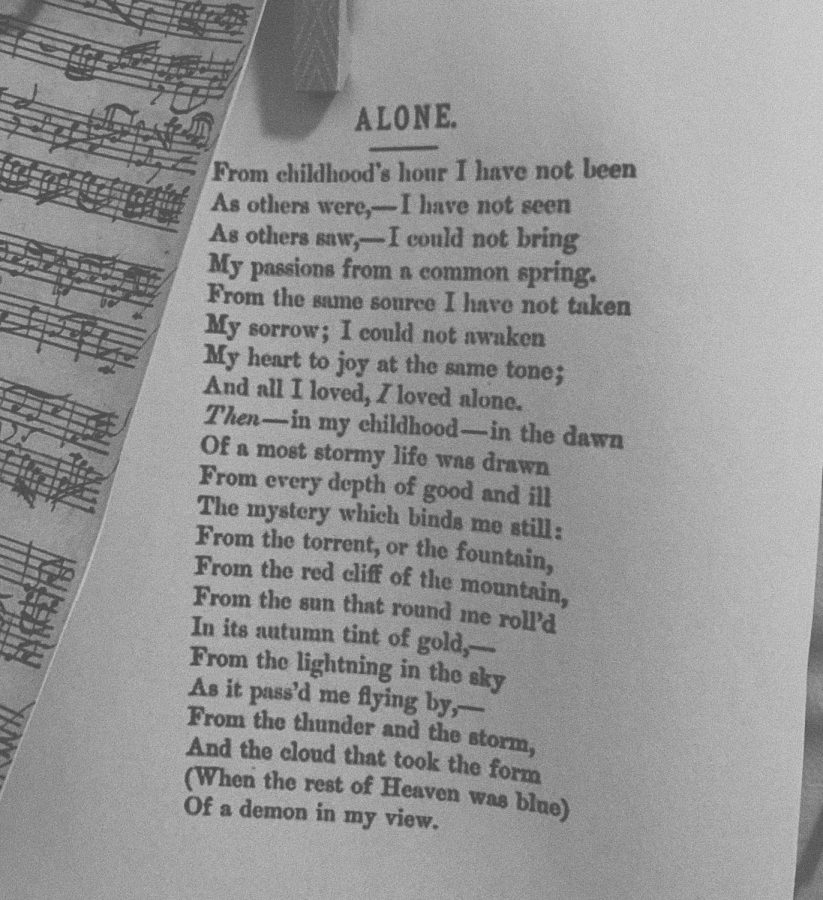Poetry is on its Deathbed, and it’s Our Fault.
Poets do not write expecting us to analyze each line.
Edgar Allen Poe’s “Alone”
Roses are red, violets are blue. Poetry is boring, and that statement is true. When the English teacher announces that the next unit will focus on poetry, almost the whole class will groan in unison: “It’s too hard to understand,” or “It doesn’t make sense.”
I, for the record, love poetry. Yet at the same time, I completely sympathize with students’ unanimous frustration with it. I, too, have rolled my eyes during poetry units—not out of a distaste for Frost or Dickinson or Shelley but for the way schools have taught us how to read it.
Poetry is an art form, much like a painting, except created with the medium of words; despite this, we often fail to treat it like one when we integrate it into the curriculum. We assume the duty of dissecting every metaphor, uncovering every symbol, and demystifying every stanza. Instead of appreciating and dwelling in the beauty of each line, we “tie the poem to a chair with rope and torture a confession out of it,” as phrased by Billy Collins.
When you walk through a museum, your job is not to find the exact meaning of every single painting. An artist does not paint a tree expecting viewers to discern the distinct colors of the highlights and shadows or the brush with which he or she painted the leaves; rather, the painting is to be beheld in full, as a comprehensive depiction of what the artist finds a worthy subject. In the same way, each line of a poem serves as an individual element of a greater, beautiful picture. Not as a mere sentence or phrase to be analyzed and annotated until it loses its significance.
Part of the reason why we so easily treat poetry as an essay falls on the shift in today’s culture of entertainment and literature. Before, most people never actually read it in their head; they instead listened to it as a rhythmic, auditory form of art, hence why poets followed specific rhyming and syllable structures. Iambic pentameter and ABAB sequences did play rather important roles. To put it into perspective, the rap music genre closely resembles classic poetry in a way. No one necessarily reads rap lyrics word by word with the intention of probing its meaning.
Yes, perhaps the era of classic poetry must come to an end someday, considering that our tastes inevitably evolve with time. Let us not continue to expedite the process of its degeneration, however, by stripping it of its very purpose. In its essence, its beauty shall never dwindle; its fire shall never be extinguished. Yet I am afraid that torturing a confession out of it only distracts us from its true magnificence. May poetry be remembered as true art and poems as written masterpieces, not as formulaic equations or mysteries to be solved. Often, they come without definite answers. And often, that is what makes them beautiful.




